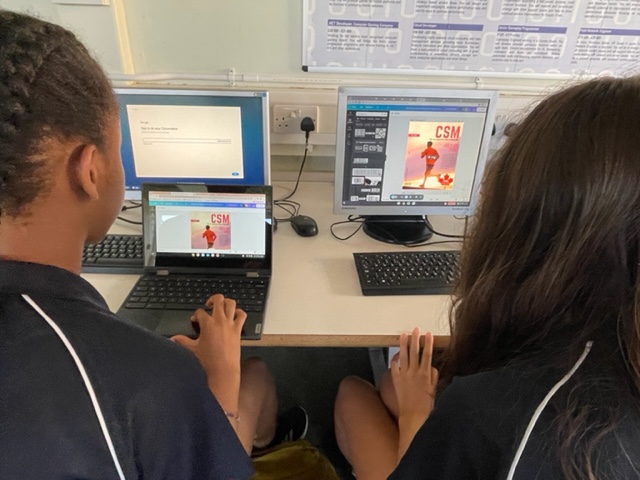Media Studies
| Curriculum Intent and Overview | |
|---|---|
| Film and Media studies at STAGS is diverse and exciting and has a profound effect on how our students see the world. Our aim is to capture learners’ imaginations, so engagement with film and print based media products becomes a lifelong passion. Students examine the depiction of different cultures, people and places and challenges ideas about gender, race, equality, nationality and British values - learners are encouraged to be open minded and free thinking in order to develop confidence in their own judgments. | |
|
|
|
Within Media Studies, students gain knowledge and an understanding of a range of different media texts in addition to studying the context in which they were made. As a result, students glean knowledge about the world in which we live.
The multifaceted nature of Media prepares GCSE students for a range of A-levels, including Film Studies at St Albans Girls' School, and careers in the many career avenues available in contemporary media.
The Department
Curriculum Leader: Mr S Cole
GCSE
Exam Board: Eduqas
Specification Number: Qualification Accreditation Number: 603/1115/0
What will be studied?
This is a relevant and contemporary subject that students can pick as a GCSE option in Year 10. Key Stage 3 students will have some knowledge of the media through their English lessons where magazines, newspapers and advertising may be studied.
This is a popular, creative subject that many students opt to study. Many aspects are covered including film, TV, advertising, digital technology, magazines amongst others. Students critically engage with texts, learn the key skills to analyse them effectively as well as consider why institutions produce them, but also why and how audiences consume them.
There is a practical element to the GCSE course where students plan, organise, produce and edit media products ranging from their own advertising campaigns, magazines and moving image sequences. The standard of the work is very high and students have the use of Apple iMac computers in two suites in the school.
 At GCSE, students study from the Eduqas specification; for progression, A Level Film Studies students study from the same specification.
At GCSE, students study from the Eduqas specification; for progression, A Level Film Studies students study from the same specification.
The new GCSE 9-1 Media Studies qualification covers media skills including the following areas:
- Enquiry and critical thinking
- Knowledge of important media issues
- How media texts relate to context
- Specialist terminology used in relation to original ideas about a range of media texts
- Development of theoretical understanding
- Creative Media Production
How is the course assessed?
Component 1: Exploring the Media
- Written examination: 1 hour 30 minutes
- 40% of qualification
This exam assesses media language and representation in relation to print media forms: magazines, marketing (film posters), newspapers, or print advertisements. Students study 8 print media forms in addition to studying film, radio and computer games.
Component 2: Understanding Media Forms and Products
- Written examination: 1 hour 30 minutes
- 30% of qualification
This exam assesses media language or representation, which will be based on an extract from one of the set television programme episodes to be viewed in the examination. Students study the Sitcom genre with a specific focus on ‘Friends’ and ‘The IT Crowd’. In addition to the study of television students study music videos and online media in relation to media industries, audiences or media contexts.
Component 3: Creating Media Products
- Non-exam assessment
- 30% of qualification
An individual media production for an intended audience in response to a choice of briefs set by WJEC, applying knowledge and understanding of media language and representation. The briefs will always specify the intended target audience, as well as other key requirements such as genre/style.
The table below summarises Components 1, 2 and 3:
COURSE STRUCTURE
Coursework to be undertaken in Year 10.
Both exams are to be sat in Year 11.
|
Exam 1 (40%) |
Section A: Media Language & Representation How the media communicates with its audience and how certain groups of people are portrayed. |
|
Section B: Exploring Industries & Audiences How & why a particular product appeals to its audience. |
|
|
Exam 2 Understanding Media forms & products (30%) |
Section A: Television Analysis of a particular TV programme. |
|
Section B: Music Analysis of music videos. |
|
|
Coursework (30%) |
Creating Media Products Individually making content for a magazine. |
What texts are recommended?
The texts studied as part of course are available on the specification (links below)
Eduqas GCSE Media Studies Student book
Eduqas GCSE Media Studies Revision Guide
What websites are recommended?